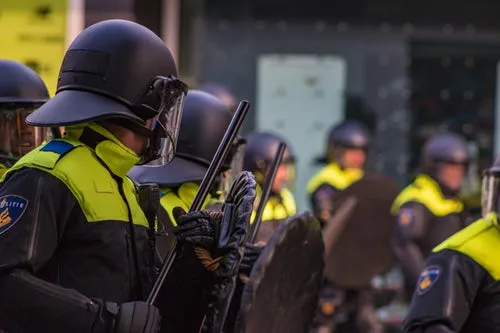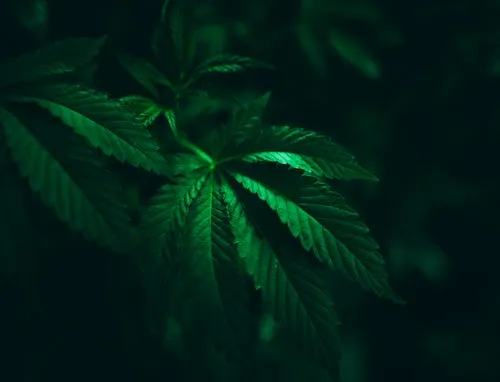
Safety is good, right? It certainly sounds good, anyway. Hardly anyone wants to be hurt. Few enjoy being in danger. When an authority comes along and says "this is for your protection" many people don't bother to think about what that authority is "protecting" them from or how it is doing the "protecting." Often the "danger" is nonexistent or over blown. Sometimes, these authorities will say that we need to be protected from ourselves and the desire for the perception of safety causes people to accept this sort of "protection" and the abuse of power that it requires, even as their friends, family, and neighbors are labeled as "dangerous" criminals. In short, by blindly accepting the "we only want to protect you" explanation from an authority, one invites real danger into his or her life because it gives that authority an excuse to abuse it's power, target its opponents, and demonize the things that it fears without troublesome public outcry and resistance. This being the case, it is important for one who values his or her autonomy and freedom or is concerned about the abuse power by the authorities to understand how and why the claims about protection and safety are exploited and to remain suspicious of anyone who offers to be a protector.
There are some dangers that require a collective effort and, perhaps, the organization of some sort of centralized authority to protect us from (an invading army comes to mind) but the things the authorities claim to defend us against are often non issues. Let's use cannabis and the common psychedelics for an example. We are told that these are dangerous drugs that are used by dangerous criminals but anyone who has done any meaningful research on the subject (or consumed them themselves) can see that this is clearly not the case. Neither cannabis nor the traditional psychedelics are particularly harmful to one's psychical or mental health, they do not contribute to crime (except in relation to the drug war which is the result of the drug war itself and not the drugs), and they are not addictive. It doesn't take a great effort to see that the "it's for your safety" argument does not hold up (both with these drugs and many other "dangerous" things that we are prohibited from having or doing).

There are several reasons for an authority to use the rhetoric of protection but justifying the suppression of "undesirable" groups is one of the primary motivations. Early marijuana law were used to target minorities and disrupt their ability to organize (in fact, the reason we use term "marijuana" is because it sounded more alien and thus more frightening than cannabis). This gave the authorities an easy excuse to come along, abuse, and arrest people before they had a chance to threaten the establishment and because they and the drug that they may or may not have used was labeled dangerous, no one questioned it. History repeated itself when cannabis and psychedelics were associated with anti-war and counter culture movements during the mid 20th century. The establishment saw a threat in the philosophy of the hippies and other people with alternative viewpoints and the modern incarnation of the drug war began to suppress the newly targeted groups of "undesirables." Once again, many people supported these politically motivated attacks because they were framed as the "righteous" authorities swooping in to "defend" us from "dangerous criminals."

Sometimes, the "protecting your safety" argument is made to demonize specific things that the authority fears. Despite the absurd claims one hears in anti-drug propaganda, the authorities are not ignorant of the real effects of psychedelics and cannabis. They know that both cannabis and psychedelics have the ability to allow people to view things (like government propaganda) through a radically different lens and that scares the hell out of anyone whose power relies on the blind obedience of people who have bought the official narrative. Obviously, letting people open their minds at will is unacceptable to the existing systems of power and, not surprisingly, they try to frighten people away from these drugs by telling us that they are such a danger that we require the protection of the government to keep us safe from them. This is why we have lies like "weed causes brain damage" and "psychedelics will make go insane" being presented as fact by the authorities and their propagandists. It serves the duel purpose of justifying the questionable actions of the authority and discouraging people from using the drugs and discovering that they have been lied to. Unfortunately, many people will be fooled by this line of attack because we have a strong drive for self-preservation and many of us have been been led to believe that the authorities care about our health and safety (which they clearly don't but that is a topic for another time).

By accepting protection of an authority, we surrender a portion of our power to entities that have consistently shown themselves to be both abusive and untrustworthy. When we allow an authority to say "you can't put that in your body" or "you can't listen to that song," or whatever because "They" say that it is dangerous, we are delivering our freedom to choose our own destiny into the hands of another. It is a willing submission that is born out unquestioning fear and blind belief in the benevolence of an authority. The thing is, we should know that most, if not all, systems of control can not be trusted and are far from benevolent. Show me government, military, police force, or what have you and I will show an authoritative structure that has committed atrocities and abuses of power that harm the people that it claims to serve, protect, or govern. When we willingly hand them some of our power, we invite our own exploitation and lose yet another sliver of our freedom. Worst of all, the powers that we give away are rarely returned to us (I might point the Roman republic's decision to name Julius as dictator but there are countless modern examples too).
If we wish to avoid this sort of oppressive protection, we must always question those who claim to be our defenders. We must ask if the "danger" is really a danger. We must determine what the cost of our protection really is and if paying that price is worse than the alleged danger itself. Finally it is important to look for other motives that may be driving the authorities sudden desire to protect us from something. If the claim passes these tests, then, perhaps, there is merit to it but if something does not seem to add up, then we should refuse, oppose, or actively resist the "protection."

While I focused on cannabis and psychedelics here, this issue goes far beyond the drug war. Sometimes, "They" will say that it is a person with "dangerous views" that "They" want to "protect" us from. Sometimes it is art or literature. It could be some object. It could be a religious belief. Bitcoin has been a popular "boogieman" lately. It really does not matter what the dangerous "it" is, so long as we remain aware that our desire for safety is an avenue of exploitation and that those who would exploit us know this. If someone comes along and offers to protect you, I would ask that you think about what that protection means before you accept it. Doing that won't solve all of our problems on this front, but it is something anyone can do and if enough of us do it, that will be a good starting point.
Peace.
All the images in this post are sourced from the free image website, unsplash.com.